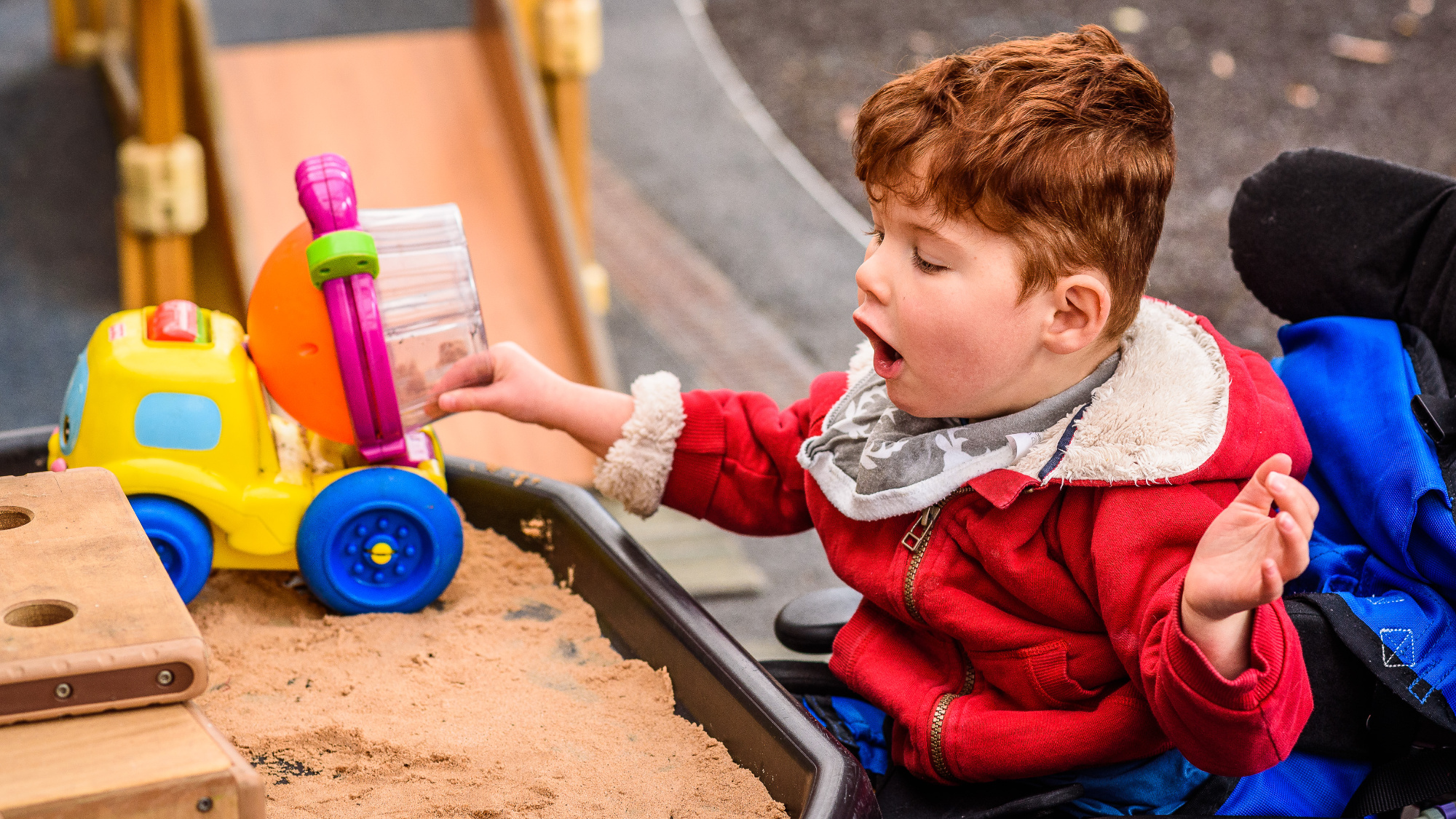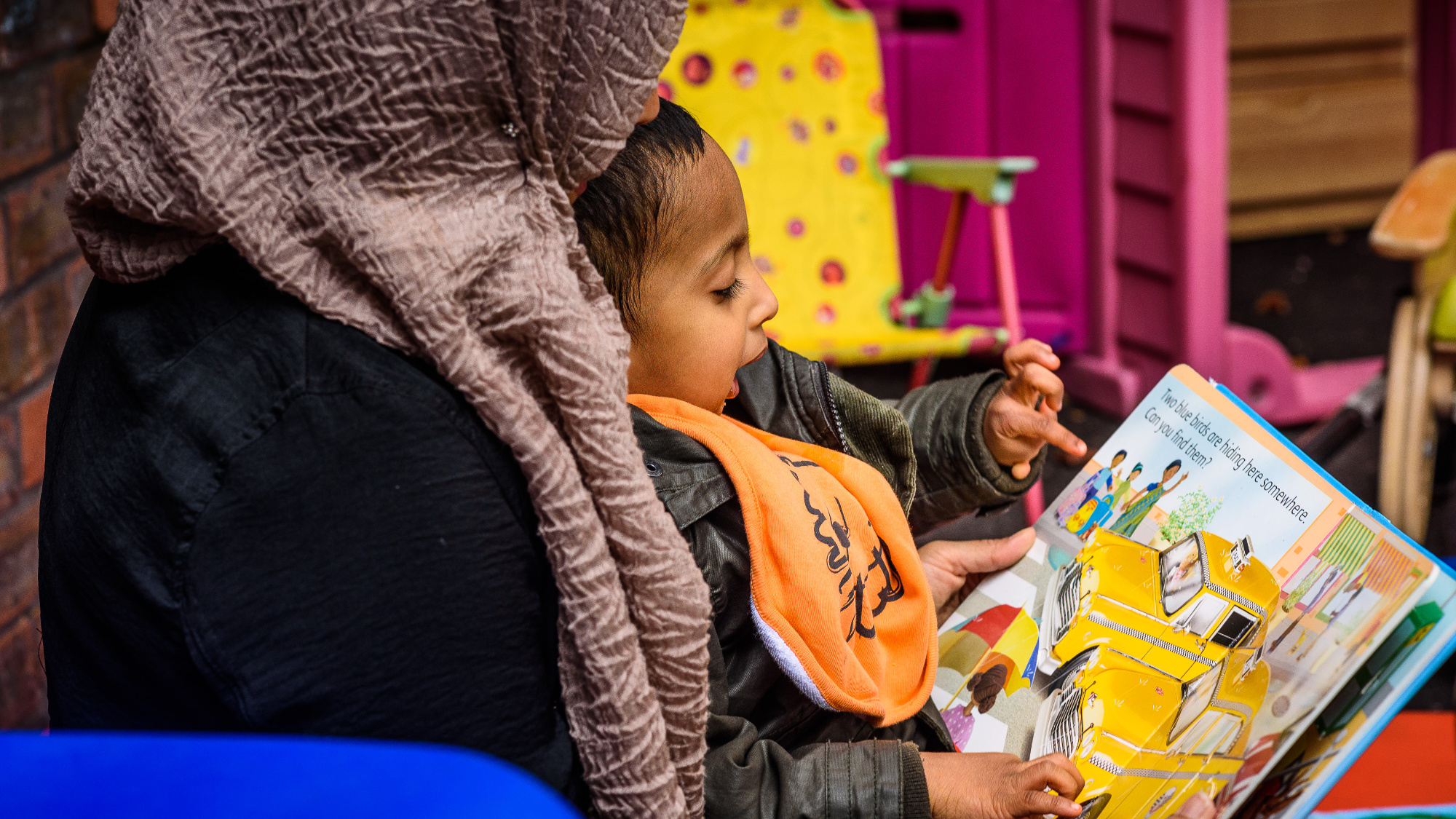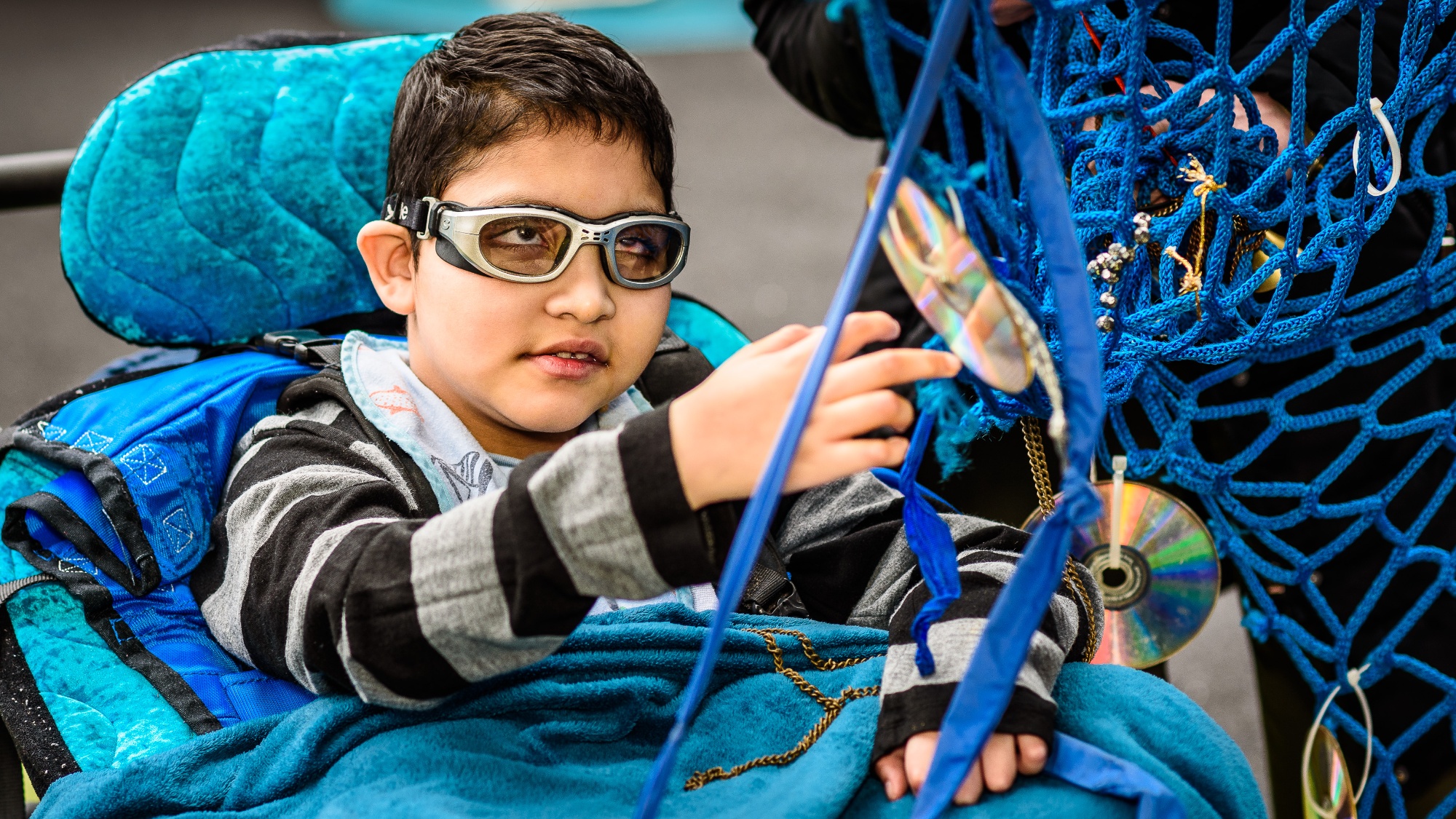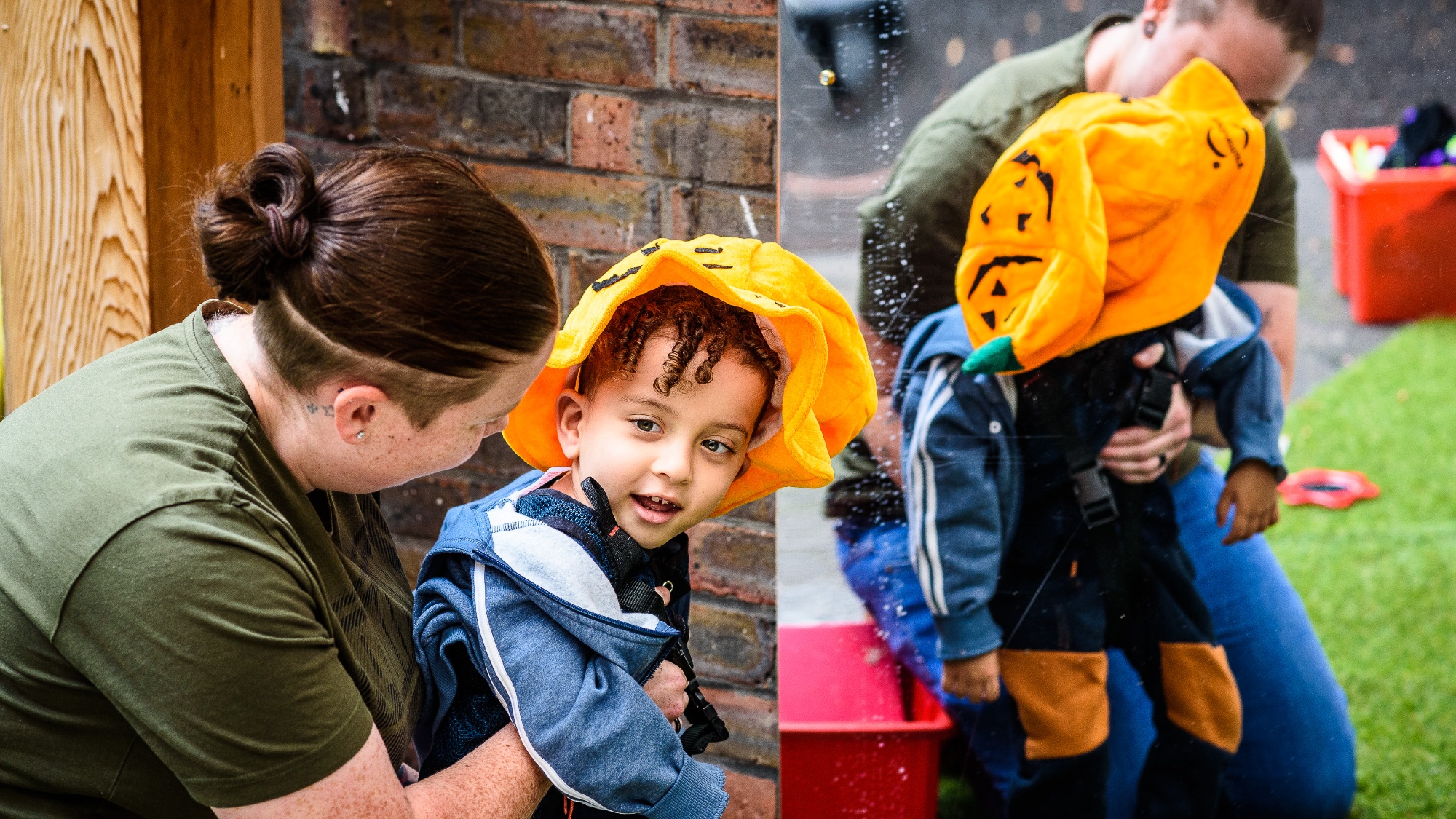Curriculum
Curriculum - Early Years
Class grouping:
Children in the Early Years Foundation Stage are grouped according to their age and/or their experience of school. All classes share a three year planning cycle which enables children to join at any time in the year and provides the structure and repetition that very young children need.
The Stephen Hawking Early Years Curriculum:
We have developed our Early Years curriculum to meet the needs of young children with profound and multiple learning difficulties, we have used a range of publications to complement the statutory framework for the Early Years Foundation Stage. These include;
- The Developmental Journal for Children with Complex Needs published by The Disabled Children’s Council
- From Birth to One, a Year of Opportunity by Maria Robinson
- Teaching Motor Skills to Children with Cerebral Palsy and Similar Movement Disorders by Sieglinde Martin
We operate a three year planning cycle. Within this, each term has an umbrella theme. These are;
Cycle 1
- Autumn - ourselves: My Body
- Spring - Growth and Change: The Weather
- Summer – The World Around Us: The Supermarket
Cycle 2
- Autumn - ourselves: My Senses
- Spring - Growth and Change: Growing Seeds
- Summer – The World Around Us: Transport
Cycle 3
- Autumn - ourselves: My Family
- Spring - Growth and Change: Cooking
- Summer – The World Around Us: The Park and Garden

The EYFS Framework states that;
“children learn and develop well in enabling environments with teaching and support from adults, who respond to their individual interests and needs and help them to build their learning over time. Children benefit from a strong partnership between practitioners and parents and/or carers”
At Stephen Hawking School we have incorporated these themes in to our daily routines and provision (see Curriculum progression within the EYFS at Stephen Hawking School). We provide developmentally appropriate, play based learning adapted to meet the specific needs of our pupils. All classes work closely alongside each other, with parents and other professionals.
The Environment and Routines:
Equal emphasis is placed on the inside and outside learning environments, ensuring that they reflect children’s interests and learning needs. The day is clearly and sensitively structured in order to establish routines that the children can begin to learn and to anticipate.
Developing Relationships and Establishing Communication Skills:
The development of effective communication is a thread which runs through the whole day. Individualised strategies are developed including; signing, making eye contact, speaking, gesture, use of objects and photographs. When children start school, we provide a key worker to support them and their parents to settle into school. This enables children and parents alike to develop trusting relationships with consistent adults.
Self-Help Skills:
Meal times are recognised as important times of the day, and some children in Early Years receive one to one support as required at these times. Individual feeding programmes are developed with the advice and support of the Speech and Language Therapist and Occupational Therapist. Children who do not have food orally have the opportunity to explore food through messy play.
Children are encouraged to take responsibility for their self-care needs as soon as they can, and for some this will include toilet training, using adapted toilets and potty chairs as required.
Learning Targets:
After the first 8 weeks of a child attending school, a meeting will be held to establish termly Individual Education Plan targets based on their Education and Health Care Plan. These targets underpin all of their learning. Therapy programmes are incorporated into our play based learning activities and daily routines. Wherever possible the therapists work in the classroom alongside class staff so that the children have familiar people around them.
Assessment:
Children’s progress is observed and recorded within our on line system, Earwig. Progress is assessed using a framework we have written that combines The Developmental Journal for Children and Young People with Complex Needs and the Development Matters (2013 and 2020) section of the EYFS.
PDF Attachments for EYFS:
1. Curriculum progression within the EYFS at Stephen Hawking School
2. Cycle 1; autumn, spring, summer
3. Cycle 2; autumn, spring, summer
4. Cycle 3; autumn, spring, summer
Curriculum - Key Stage 1
There are three Key Stage 1 classes. These classes continue to build on the skills and knowledge gained during the pupils’ time in Early Years. We continue to work on each child’s communication skills and use visual, tactile and auditory cues. We have a structured day that can be developed and understood by the pupils. Communication is seen as vital to the development of all other areas of the curriculum.
In addition to specific lessons, each class has a yearly cycle of topics which gives pupils access to a full and rich range of experiences and opportunities. The topics range from ‘Growth’ to ‘On the Move’. These topics offer the pupils the opportunity to go on educational visits. For many of the pupils, a more focussed curriculum is offered so that they are able to concentrate on opportunities that are important to them.

Religious education and personal and social education are incorporated into the curriculum and school day via assemblies, celebrations, reflection and quiet time. The curriculum is individualised to meet the needs of the pupils, working in a child centred way. Lessons are taught in whole class, small groups and one to one.
At Key Stage 1 the pupils move from the classroom to the dining hall for their midday meals.
Assessment in Key Stage 1 is via teacher assessment. The P Levels are used to assess pupil achievement in National Curriculum subjects.
Curriculum - Key Stage 2
There are four Key Stage 2 classes. As with Key Stage 1, each class has a yearly plan to ensure that all pupils are taught the full range of subjects offered by the school’s curriculum. Most pupils will be accessing a more focussed curriculum and are taught via the school’s schemes of work. These schemes of work are linked back to the National Curriculum. All assessment is via teacher assessment. The P Levels are used to assess pupil achievement in the National Curriculum. In addition, each pupil’s individual education plans have targets relating to communication and personal and social education — learning skills.

At Key Stage 2 pupils are expected to:
- take increasing responsibility for their own personal needs;
- be able to work co-operatively;
- be able to work independently at a set task;
- be able to share with their peers.
Curriculum - PHONICS & READING
At Stephen Hawking School, for those children who have individual rationales for undertaking specific phonics programmes, we follow the progression of letters and key words as laid out in Letters and Sounds 2007. Activities and sessions are bespoke to each child and are planned to meet their individual learning styles and communication needs. This allows for a range of approaches and resources to be used to ensure children make progress according to their needs and their individual rationale.
For identified children, we use a number of reading schemes to provide relevant and relatable texts for our children which develop their comprehension, phonetic and sight reading skills. These include:
- Floppy’s Phonics
- Songbird Phonics
- Bug Club
- Collin’s Big Cat
- Oxford Reading Tree
- Rigby Rising Stars
These provide a range of texts, illustrations and photos which can be matched to children’s interests and needs to promote a love of reading and progression in reading skills. The decision to use these texts to support phonics development will be based around the child’s individual rationale and needs as well as their levels of symbolic understanding and comprehension. Some children will also access reading through bespoke texts created to meet their needs and interests.

